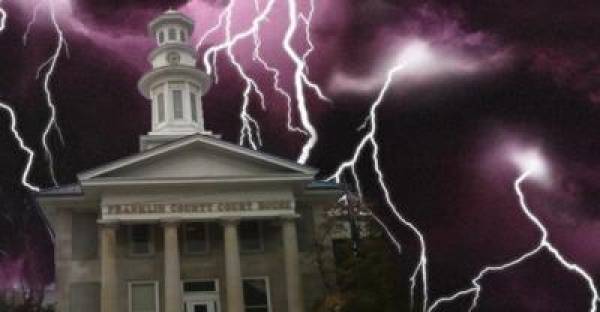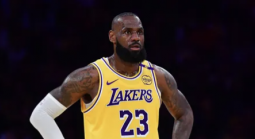Kentucky Online Gambling Domain Seizure Case: Predicted Outcome

Gambling911.com had the opportunity to sit in on Tuesday's very high profile online gambling domain seizure case in Frankfort, Kentucky. The Governor of that commonwealth, Steve Beshear, has asked the Honorable Judge Thomas Wingate of the Franklin Circuit Courtroom to seize 141 Internet gambling domains.
"Illegal Internet gambling poses a unique threat to our Commonwealth," argued Beshear. "For individuals - particularly our youth - it is tantamount to a virtual home invasion. For some of our vital and most venerable legitimate enterprises, it undermines their exemplary regulatory compliance and siphons away their constituents."
TechDirt.com offered an interesting take on this:
It's always fascinating to watch US politicians act as complete hypocrites when it comes to gambling. They talk about moral issues on why they need to stop online gambling, but allow their own personal favorite types of gambling, such as horse races and lottery. Kentucky, of course, is a big horse racing state, so perhaps it should come as no surprise that the state has strict anti-online-gambling laws. These laws are so strict that the state's governor is using them to seize 141 domain names of sites that the state claims are used for illegal gambling. Of course, it appears that many of the domains aren't online gambling sites at all, but parked domains. The state doesn't seem shy about the fact that it's doing this to "protect" the horse racing business, but of course, throws in the moral argument as well. Home invasion? Really? A parked domain is the equivalent of a home invasion?
No doubt the industry should be proud of the turnout for Tuesday‘s hearing. Kentucky's largest and most highly regarded law firms were representing the defense here along with some of Washington, D.C.'s hot shots from law firms like Greenberg Trauig and Hollrah Leyden.
Judge Wingate joked "I've never seen so many lawyers together in one court room."
And Judge Wingate was not shy about admitting at the end that "this is a very complicated matter and I will need seven days to render a decision."
Many Gambling911.com readers have asked us our opinion of Judge Wingate. Amidst our live coverage from the court room on Tuesday, little was mentioned about the judge's reaction during the hearing.
Judge Wingate talked very little. He was fascinated just as everyone else was by the arguments before him. There is always that element of "He's a local judge who may render a ‘local' decision" but the attorneys believe in this judge to make the right decision. He was respectful of both sides.
But assuming Judge Wingate is fair (and there is no reason to question why he wouldn't be), this is in no way a "given" for the online gambling industry.
Edward Leyden, representing the later firm and President of the Interactive Media Entertainment & Gaming Association, argued mostly jurisdiction. iMEGA's Motion to Dismiss stresses the concept of standing, something this trade organization insists it has been granted by the United States District Court for the District of New Jersey.
First, Leyden argued before the court that the commerce clause makes it clear that states cannot discriminate. In other words ,the commonwealth of Kentucky cannot protect its own gambling industry by trying to eliminate the competition. The Kentucky common worth finds itself in a precarious situation here: They host the world's second most bet on single day sporting event after the Super Bowl, the Kentucky Derby. Churchill Downs, home of the Kentucky Derby, runs its own online gambling site right from the commonwealth (TwinSpires.com) and it probably wouldn't surprise readers that TwinSpires.com was not among the 141 domain names mentioned in the original complaint. Beshear is also on record as indicating that online gambling is "depriving the Commonwealth of millions of dollars in revenue."
Interestingly enough, none of this might have mattered if the Interactive Media Entertainment & Gaming Association were not representing some 58 of the 141 domain name holders listed in the complaint.
Chicago lawyer Robert Foote, who was hired as an outside counsel by Beshear, argued almost exclusively that all the defendants were "shady" criminals who should be required to appear in court to defend themselves. Without their appearance in the district court before Judge Wingate, the seizure order should be enforced, Foote argued.
Fortunately, the Interactive Media Entertainment & Gaming Association can appear on behalf of its members, none of whom are required to be identified.
Hunt v. Washington State Apple Advertising Commission is cited in regard to the issue of "standing". The US Supreme Court has recognized that an association may have standing to assert the claims of its members even where it has suffered no injury from the challenged activity (other examples: Warth v. Seldin, supra at 511; National Motor Freight Assn. v. United States, 372 U.S. 246 - 1963). The Washington State Apple Advertising Commission is not even a traditional voluntary membership organization such as a trade association like iMEGA, for it has no members at all. Because the Commission has no members whose claims it might raise, and since it had suffered no "distinct and palpable injury" to itself, it can assert no more than an abstract concern for the wellbeing of the Washington apple industry as the basis for its standing. But this is exactly what iMEGA is doing. They are not seeking damages, not yet anyway. Make no mistake about it, there was talk this week that taking legal action against the Governor at a later time could be a possibility.
It is not clear if the other attorneys present enjoy such "standing". There is an irony we should point out that while Foote was so adamant that all those "online gambling criminals" should appear on their own behalf, the Governor was nowhere to be found on Tuesday either.
Foote peeked the interest of Judge Wingate when he suggested that all it would take is a $180 geo-targeting program to prevent these 141 websites from reaching Kentucky citizens.
"Why can't this box be used to prevent access?" the judge asked of the defense.
The reality is that "blocking" residents from accessing said websites makes one think of China and Saudi Arabia. Anyone from Kentucky accessing via a web service like America Online would be able to access online gambling sites. Such geo-targeting would prevent individuals from accessing such websites from government establishments like libraries and schools.
Leyden was good but even he could not stop speaking of Tim Highland, the dark horse attorney who made what some felt was a surprise stand towards the very end of the hearing. Highland, from the law firm of Stein Sperling, represented one of the world's oldest registrars, Network Solutions. Leyden and iMEGA founder, Joe Brennan, Jr., both called his argument "brilliant".
He spoke at length in regard to how domain names work and why there is no basis for seizing an actual domain name.
"People are not going to the domain names to gamble. They are going to the web site. The domain is made up of just letters and numbers. If anything the online gambling site itself should be seized."
Obviously, the later is not a possibility since most of these companies operate in jurisdictions where they are legal.
Network Solutions is standing by the 20 plus online gambling companies they represent, though it is unclear what would happen if Judge Wingate were to ultimately order all 141 domains seized.
The commonwealth argued that a 9th Circuit Court in California ruled domain names are considered property and can be seized. They referred to Bodog.com, an online gambling company that had its domain name seized. That, however, was a trademark infringement case and the complainant, Scott Lewis of 1st Technology, has repeatedly told Gambling911.com that Bodog was given ample opportunity to appear in court via their lawyers to defend themselves. Several attempts were made to serve Bodog and its representatives.
All of this aside, there was yet another compelling argument brought forth by 83-year old attorney, Bill Johnson. Clearly, the judge expressed utmost respect for Mr. Johnson who is widely considered to be one of the best attorneys in the commonwealth. He represents a few of the online gambling industry's biggest names.
Johnson contends that the commonwealth's legislature was not given the right to review this matter.
"The commonwealth has not defined public policy," he argued. "They want you - the judge - to legislate, contrary to the law."
Johnson spoke eloquently while remarking how Mr. Foote and his high priced law firm out of Chicago stood to take in a pretty good cut should the commonwealth be granted the right to move forward and seize each of the named websites and quite possibly another 300 that will be provided to the court at a future time.
Johnson used real dollar figures - in the seven figures range.
As one observer pointed out: "These lawyers will receive a cut that is way more than Judge Wingate makes in a given year."
-----
Christopher Costigan, Gambling911.com Publisher













